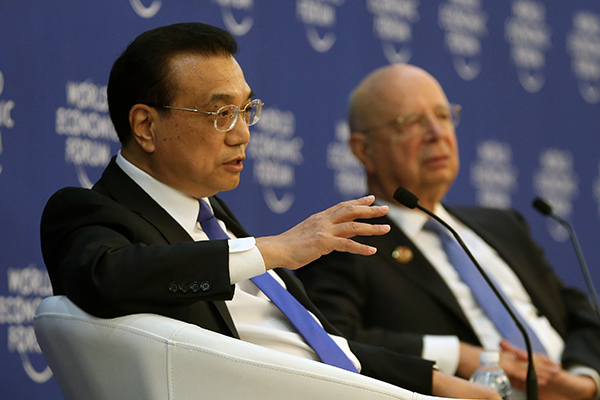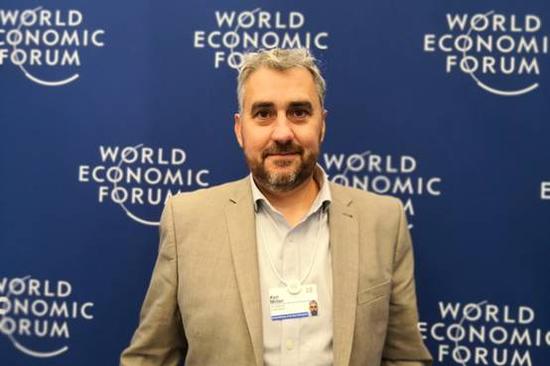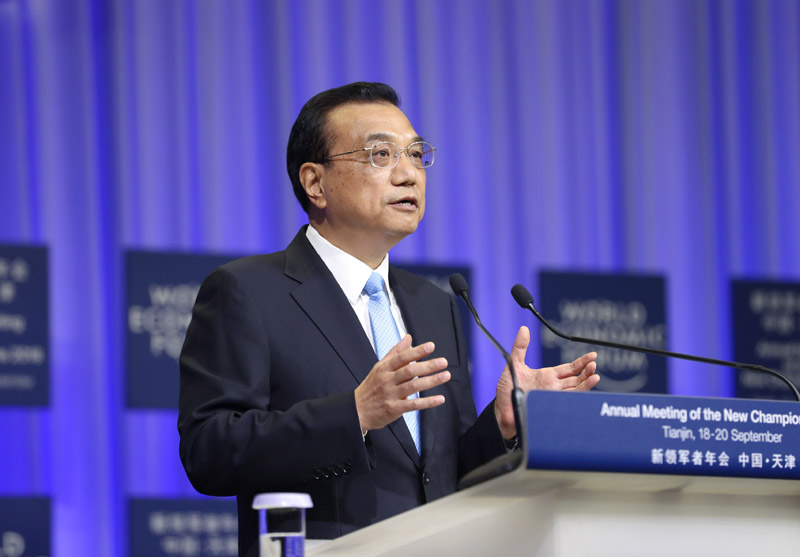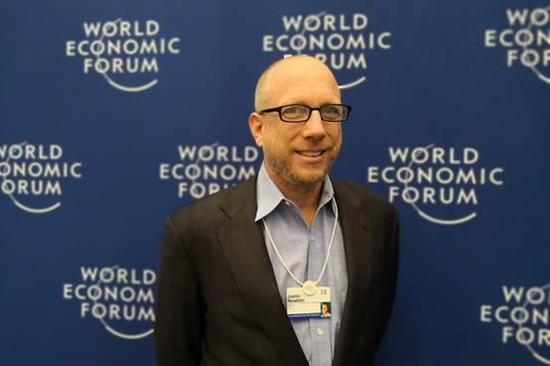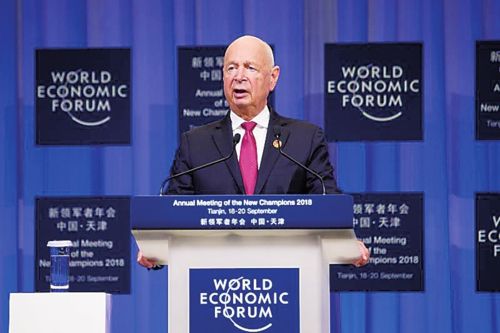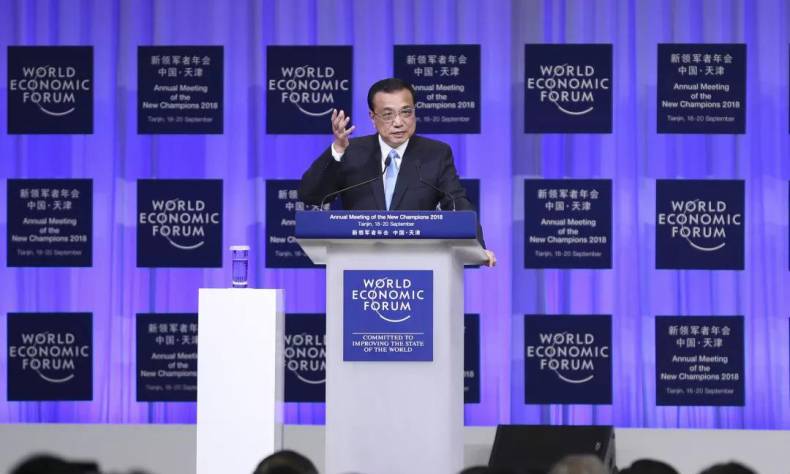
China Defends Free Trade at This Year’s Summer Davos
The conference, under the theme of “Shaping Innovative Societies in the Fourth Industrial Revolution” highlighted China’s commitment to opening up.
The Summer Davos Forum in Tianjin closed yesterday, before the Chinese people start their Mid-Autumn festivities. Like Mid-Autumn festival, which celebrates the harvest from the year, so to had the conference, which had harvested the much-valued insights of many top talents and innovators of the world.
The annual conference founded by Professor Klaus Schwab, featured political figures such as Chinese Premier Li Keqiang, business leaders and academics from over 110 countries.
The forum, under the theme of “Shaping Innovative Societies in the Fourth Industrial Revolution” highlighted China’s commitment to opening-up.
United against Protectionism, Calling for Free Trade
Before the start of the Forum, US President Donald Trump announced 10% tariff on $ 200 billion Chinese goods. Whilst China had to respond strongly with tariffs on $60 billion worth of American goods, the forum showed a united front, calling for open, global and multilateral free trade, with the plenary and break sessions titled as “China’s Open Economy”, “A Global Conversation on Artificial Intelligence” and “Global Innovation Outlook”, to name but a few.
Klaus Schwab, founder and executive chairman of the World Economic Forum, highlight the threat of protectionism on the world economy, claiming that the trade war was a “lose-lose” situation.
Premier Li’s keynote speech, also epitomized this, expressing that globalisation needed to be firmly upheld.
Δ Ken Miller, co-founder of PanIntelligence summed up the mood perfectly when saying that “free trade is something we should really try and treasure and hold on to. You shouldn’t be looking at countries like America, who lead with a very poor example and have started to close trade down”.
Committed to Opening Up
At the conference, Premier Li re-expressed China’s commitment to opening up, just as President Xi Jinping had done at the Boao Forum for Asia in April this year. “We will see to it that the monetary policy transmission mechanisms are smoothed out in order to channel more funding into the real economy and make financing more accessible and affordable for micro businesses and SMEs.”
“We have made vigorous efforts to streamline administration and cut taxes and fees, unlocking market vitality.” Said Li.
There were also reassurances for foreign companies investing in China, with aims to improve the business environment so that all companies registered in China, including foreign entities, were treated as equals.
BRI as A Vehicle for Innovation and Connectivity
The Belt and Road Initiative (BRI) was given its own forum at Summer Davos, with a focus on how it has innovated the nearly 100 countries currently participating in it.
Mathew De Morgen, whose steel company is 51% owned by Hebei Iron & Steel, added that BRI had created “people to people” relationships which is developing innovation.
Δ Justin Newton, founder and CEO of Netki Inc noted that BRI can be used to “can build tighter integration between countries in the region in terms of trade and exchange of ideas”, which is an important precursor to innovation.
Joachim von Amsberg from Asian Infrastructure Investment Bank (AIIB), mentioned that BRI is creating further opportunities in energy sectors. This could lead to Mongolia President Khaltmaagiin Battulga’s ambitious proposal, mentioned at last week’s Eastern Economic Forum in Russia, that Belt and Road countries could integrate their power sources to create enormous power grids across the route. Overall, BRI is providing “exciting” opportunities as it is opening up trade routes and benefiting all countries involved.
China’s Position in the Forth Industrial Revolution
The theme of the conference was the 4th Industrial Revolution, a concept developed by Professor Schwab, which explains that the world is entering a new digital revolution, one focused on how technology is mixed up between the physical, digital and biological.
Δ According to Professor Schwab, at a speech outside of the conference, “China has a leading role in the global transformation towards new development models characterized by technological innovation and based on intangible and digital assets”.
In terms of investing in new technology, China is leading, especially in AI technology. According to Nina Xiang, founder of China Money Network, in her list of China’s 50 top AI companies reshaping the economy, Chinese AI companies are highly skilled and making money. Of the top fifty, fourteen were “unicorns” (companies valued over $1 billion or more), and 65% had founders having doctor or post-doctoral degrees.
In his speech, Premier Li also spoke of China’s nationwide drive for entrepreneurs by offering opportunities to university graduates and migrant workers to take part in innovation. “We have made institutional improvements, adopted supportive policies, and fostered an enabling ecosystem for entrepreneurship and innovation.” said Li.
 Facebook
Facebook
 Twitter
Twitter
 Linkedin
Linkedin
 Google +
Google +
